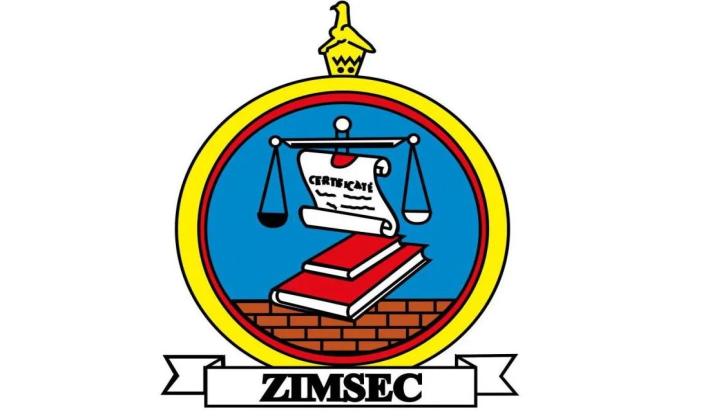News / Education
Poor O-Level pass rate blamed on teachers
06 Feb 2013 at 05:05hrs |
5392 Views

Educationists attributed the decline in the Ordinary Level pass rate to lack of motivation on teachers and an increase in untrained teachers that have flooded the education sector.
Education, Sport, Arts and Culture Minister David Coltart, however, blamed the drop on an increase in the number of candidates who sat for the examinations and the strict mantainance of the traditional pass mark by Zimsec.
The Zimsec November 2012 O-level results released this week showed that the pass rate had dropped from 19,5 percent to 18,4.
Only 31 767 candidates attained passes in five subjects out 172 698 who sat for the examinations.
The number of candidates increased by 11,3 percent as 268 854 candidates registered compared to 241 512 in 2011.
Minister Coltart said he had instructed Zimsec to mantain its traditional standards.
"I instructed Zimsec not to manipulate the pass rate mark to achieve what would appear to be a better national result, but which would in fact disguise the real picture," he said.
"In South Africa, they allowed the matric pass mark to drop below 50 percent but we need consistency in our assessment of how children are perfoming."
He said the declining pass rate was a reflection of the "extreme crisis" in education experienced between 2005 and 2009.
"We lost thousands of teachers and many teaching days were lost. Sadly, there is a batch of children going through the system whose education suffered during those years, and that is reflected in these results," Minister Coltart said.
"Another reason for the decline may be the increase in numbers of children writing which can also result in a decline in the pass rate. "
However, educationists said most teachers were not dedicated to duty because of lack of motivation.
"You can not exclude that teachers are not satisfied with their salaries," said reknowned educationist Dr Sikhanyiso Ndlovu, who is the Zanu-PF Secretary for Education.
"They are sometimes on go-slow and threatening to strike meaning there will be no one in class to teach them."
Dr Sibanda said a number of untrained teachers were manning most schools in the rural areas.
"There is a shortage of qualified educators.
"Mathematics and science subjects would remain problamatic because there is shortage of those teachers," he said.
"Areas such as Matebaleland North and South have no qualified mathematics and science teachers and there is no way those pupils would pass the subjects."
The bottom three subjects were English Language, Shona and Mathematics.
Teachers' Union of Zimbabwe chief executive Mr Manuel Nyawo said lack of textbooks and infrastructure had contributed to the decline in the pass rate.
"The textbooks came under Unicef but they came late.
"There is also no infrastructure and equipment for science subjects and there is no way pupils would record high passes in such subjects," he said.
"As long as Government does not review the salaries of teachers, we see a situation where the pass rates will continue dropping."
The three top subjects were Ndebele, Business Studies and Biology.
Education, Sport, Arts and Culture Minister David Coltart, however, blamed the drop on an increase in the number of candidates who sat for the examinations and the strict mantainance of the traditional pass mark by Zimsec.
The Zimsec November 2012 O-level results released this week showed that the pass rate had dropped from 19,5 percent to 18,4.
Only 31 767 candidates attained passes in five subjects out 172 698 who sat for the examinations.
The number of candidates increased by 11,3 percent as 268 854 candidates registered compared to 241 512 in 2011.
Minister Coltart said he had instructed Zimsec to mantain its traditional standards.
"I instructed Zimsec not to manipulate the pass rate mark to achieve what would appear to be a better national result, but which would in fact disguise the real picture," he said.
"In South Africa, they allowed the matric pass mark to drop below 50 percent but we need consistency in our assessment of how children are perfoming."
He said the declining pass rate was a reflection of the "extreme crisis" in education experienced between 2005 and 2009.
"We lost thousands of teachers and many teaching days were lost. Sadly, there is a batch of children going through the system whose education suffered during those years, and that is reflected in these results," Minister Coltart said.
"Another reason for the decline may be the increase in numbers of children writing which can also result in a decline in the pass rate. "
However, educationists said most teachers were not dedicated to duty because of lack of motivation.
"They are sometimes on go-slow and threatening to strike meaning there will be no one in class to teach them."
Dr Sibanda said a number of untrained teachers were manning most schools in the rural areas.
"There is a shortage of qualified educators.
"Mathematics and science subjects would remain problamatic because there is shortage of those teachers," he said.
"Areas such as Matebaleland North and South have no qualified mathematics and science teachers and there is no way those pupils would pass the subjects."
The bottom three subjects were English Language, Shona and Mathematics.
Teachers' Union of Zimbabwe chief executive Mr Manuel Nyawo said lack of textbooks and infrastructure had contributed to the decline in the pass rate.
"The textbooks came under Unicef but they came late.
"There is also no infrastructure and equipment for science subjects and there is no way pupils would record high passes in such subjects," he said.
"As long as Government does not review the salaries of teachers, we see a situation where the pass rates will continue dropping."
The three top subjects were Ndebele, Business Studies and Biology.
Source - TH
Join the discussion
Loading comments…








































